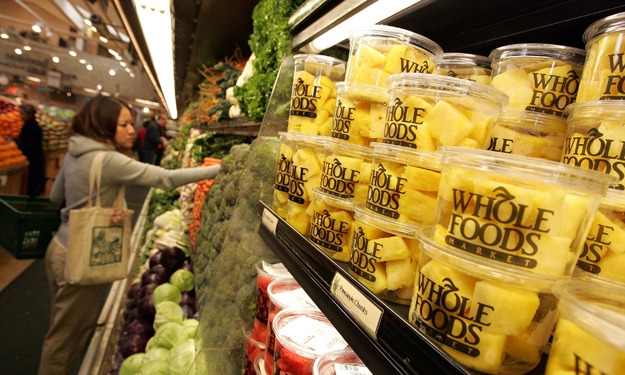
From Whole Foods recyclable cloth bags to Michelle Obama’s organic White House garden, modern eco-foodies are full of good intentions. We want to save the planet. Help local farmers. Fight climate change — and childhood obesity, too. But though it’s certainly a good thing to be thinking about global welfare while chopping our certified organic onions, the hope that we can help others by changing our shopping and eating habits is being wildly oversold to Western consumers. Food has become an elite preoccupation in the West, ironically, just as the most effective ways to address hunger in poor countries have fallen out of fashion.
Helping the world’s poor feed themselves is no longer the rallying cry it once was. Food may be today’s cause célèbre, but in the pampered West, that means trendy causes like making food "sustainable" — in other words, organic, local, and slow. Appealing as that might sound, it is the wrong recipe for helping those who need it the most. Even our understanding of the global food problem is wrong these days, driven too much by the single issue of international prices. In April 2008, when the cost of rice for export had tripled in just six months and wheat reached its highest price in 28 years, a New York Times editorial branded this a "World Food Crisis." World Bank President Robert Zoellick warned that high food prices would be particularly damaging in poor countries, where "there is no margin for survival." Now that international rice prices are down 40 percent from their peak and wheat prices have fallen by more than half, we too quickly conclude that the crisis is over. Yet 850 million people in poor countries were chronically undernourished before the 2008 price spike, and the number is even larger now, thanks in part to last year’s global recession. This is the real food crisis we face.
It turns out that food prices on the world market tell us very little about global hunger. International markets for food, like most other international markets, are used most heavily by the well-to-do, who are far from hungry. The majority of truly undernourished people — 62 percent, according to the U.N. Food and Agriculture Organization — live in either Africa or South Asia, and most are small farmers or rural landless laborers living in the countryside of Africa and South Asia. They are significantly shielded from global price fluctuations both by the trade policies of their own governments and by poor roads and infrastructure. In Africa, more than 70 percent of rural households are cut off from the closest urban markets because, for instance, they live more than a 30-minute walk from the nearest all-weather road.
Poverty — caused by the low income productivity of farmers’ labor — is the primary source of hunger in Africa, and the problem is only getting worse. The number of "food insecure" people in Africa (those consuming less than 2,100 calories a day)will increase 30 percent over the next decade without significant reforms,to 645 million, the U.S. Agriculture Department projects.
What’s so tragic about this is that we know from experience how to fix the problem. Wherever the rural poor have gained access to improved roads, modern seeds, less expensive fertilizer, electrical power, and better schools and clinics, their productivity and their income have increased. But recent efforts to deliver such essentials have been undercut by deeply misguided (if sometimes well-meaning) advocacy against agricultural modernization and foreign aid.
In Europe and the United States, a new line of thinking has emerged in elite circles that opposes bringing improved seeds and fertilizers to traditional farmers and opposes linking those farmers more closely to international markets. Influential food writers, advocates, and celebrity restaurant owners are repeating the mantra that "sustainable food" in the future must be organic, local, and slow. But guess what: Rural Africa already has such a system, and it doesn’t work. Few smallholder farmers in Africa use any synthetic chemicals, so their food is de factoorganic. High transportation costs force them to purchase and sell almost all of their food locally. And food preparation is painfully slow. The result is nothing to celebrate: average income levels of only $1 a day and a one-in-three chance of being malnourished.
If we are going to get serious about solving global hunger, we need to de-romanticize our view of preindustrial food and farming. And that means learning to appreciate the modern, science-intensive, and highly capitalized agricultural system we’ve developed in the West. Without it, our food would be more expensive and less safe. In other words, a lot like the hunger-plagued rest of the world.
View the entire Source Article

